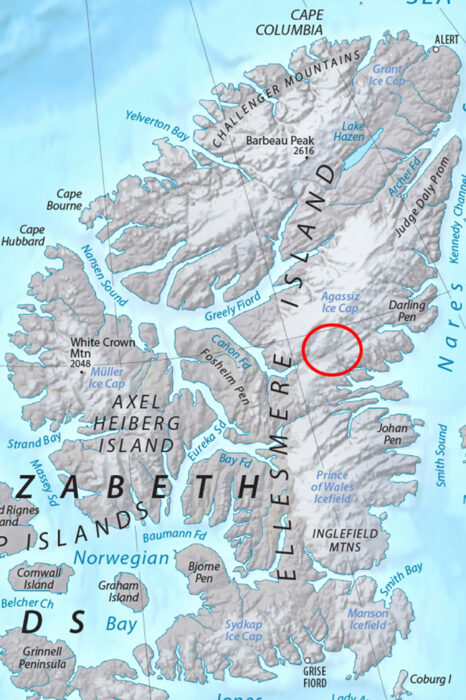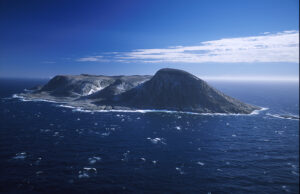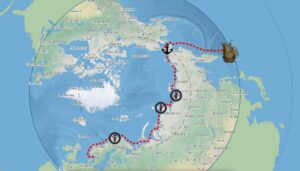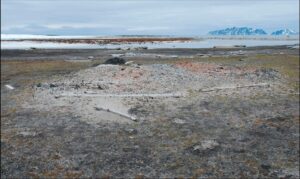Ten days ago, while exiting the Agassiz Ice Cap on Canada’s Ellesmere Island, Vincent Colliard fell into a crevasse. He shared details of the incident yesterday on social media. The French polar traveler escaped without injury but described the event as “a scary moment where life’s balance was on the edge.”
Colliard is 38 days into a 1,100km unsupported ski traverse of Ellesmere Island, traveling from north to south with Norwegian veteran Børge Ousland. In video footage posted to Instagram, Colliard appears trapped beside his sled in a tight crevasse. As the camera pans upward, the clear blue sky is visible far above, indicating he had fallen a significant distance.
Fatigue and complacency
The accident occurred on day 26 of their journey while on a glacial arm at the edge of the ice cap. Reflecting on the fall, Colliard acknowledged a lapse in caution.
“We made big mistakes. We let our guard down as we were tired — 26 days of hard labor on the body — and maybe acted too confidently about what we were doing.”
He emphasized that they had been following safety protocols to mitigate crevasse hazards: “We know the drills though… blocking knot connected to the back of the sleds, max tension on the rope, easy access to the crevasse rescue kit…Our guard is right back up with triple precautions.”
Many glaciers on Ellesmere Island have few crevasses compared to alpine glaciers, though crevasses are still present. Snow bridges in the frigid, windy High Arctic also tend to be firmer, but at this milder time of year, they would have softened up.

Some small Ellesmere ice caps, like the one above, may have no crevasses, but not all are this benign. Photo: Jerry Kobalenko
While crevasse falls are rare during polar expeditions, they do occur. In 2021, Belgian polar guide Dixie Dansercoer died after falling 25 meters into a crevasse on the Greenland Ice Sheet. And in 2023, University of Alberta professor Maya Bhatia lost her life on the Jakeman Glacier on southern Ellesmere Island when she fell into a moulin while conducting scientific fieldwork. It is the only known death on an Ellesmere ice cap.
Entering the final phase
Despite the near miss, Collaird appears to be in good spirits: “We are still on the way to attempt an unsupported full crossing of Ellesmere Island. It was a magical moment to see the light of the sun again and away from the darkness of that hole.

The approximate site of the fall. Map Source: shadedrelief.com
After successfully crossing Sverdrup Pass, Colliard and Ousland are now traversing the Prince of Wales Ice Cap — the final major ice cap of their expedition. Yet, challenges remain. Once they descend from the ice, their route will take them over the frozen channels of Makinson Inlet and Bentham Fiord. From there, they will navigate a complex system of glaciers and ice fields en route to their final destination: King Edward Point, the southernmost tip of Ellesmere Island.






